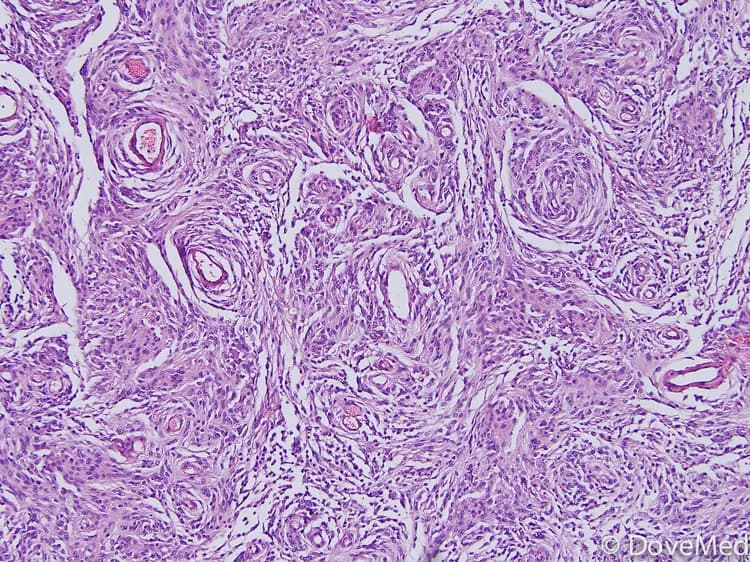
Study Establishes Biomarkers To Help Diagnose, Treat Psychosis
In a groundbreaking study led by UT Southwestern Medical Center, a comprehensive set of empirical biomarkers has been established to aid in diagnosis and treatment of psychosis.
To date, the gold standard for diagnosis of psychosis has been clinical observation, classifying patients into schizophrenia, schizoaffective, and bipolar disorders. But in this study, the Bipolar-Schizophrenia Network on Intermediate Phenotypes (B-SNIP) identified three neurobiologically distinct biotypes that do not always match up with the conventional clinical diagnosis.
An estimated 6 percent of the U.S. population experience schizophrenia, schizoaffective, or bipolar disorders. That's as many as 19 million Americans.
"In a sense, we have totally deconstructed and rethought the basis for diagnosis in psychosis," said Dr. Carol Tamminga, Chair of Psychiatry at the UT Southwestern, who leads the consortium. "Building diagnoses based on biology, not just phenomenology, makes it possible for the biological bases of these brain disorders to stand out as molecular targets for disease definition and novel treatments."
The B-SNIP consortium, which also includes Harvard University, Yale University, the University of Chicago, and the University of Georgia, published its findings online in the American Journal of Psychiatry.
"In the end, we found the term 'psychosis' might actually describe a number of unique psychiatric disorders, just as the term 'congestive heart failure' might describe a range of cardiac, renal, and pulmonary disorders, each having distinctive mechanisms and treated with specific remedies," said Dr. Elena Ivleva, Assistant Professor of Psychiatry and the study co-leader at UT Southwestern.
Considerable evidence has shown that a symptom-based diagnosis of psychotic illness incompletely captures biologically meaningful differentiations, often resulting in less-than-satisfactory treatments.
In the study, participants submitted to various cognitive, eye-tracking movement, and electroencephalography (EEG) tests as well as several modalities of magnetic resonance imaging (MRI). The group included psychotic individuals, their first-degree relatives, and a control group of subjects. Analysis of the results of the biomarker battery in 1,872 of those tested demonstrated three distinct clusters, or biotypes, of psychoses: • Biotype 1 was the most impaired group, demonstrating poor cognition and eye-tracking capabilities, and the most brain tissue damage, primarily distributed over frontal, temporal and parietal regions of the brain. Although all of the usual psychosis diagnoses appear in Biotype 1, there was a slight predominance (59 percent) of schizophrenia cases in this most impaired biotype, and they tended to have more severe psychotic symptoms (hallucinations and delusions) than the other groups. • Biotype 2 demonstrated cognitive impairment and poor eye-tracking, but exhibited high brain wave response as measured by EEG, something neuroscientists often call "noisy brain." These individuals are often rated as overstimulated, hyperactive, or hypersensitive. Biotype 2 also had gray matter loss in frontal and temporal regions, but less than that found in Biotype 1. Biotype 2 cases also had worse scores on mood scales, such as depression and mania. • Biotype 3 was the least impaired, with near-normal evaluations of cognition, EEG function, and brain structure. Their symptoms were of moderate severity. Subjects in this group were slightly more likely to be diagnosed with bipolar disorder (60 percent).
"What's puzzling and fascinating at the same time is that all three biologically driven disease constructs, or biotypes, might be clinically diagnosed as having schizophrenia, schizoaffective, or bipolar disorder," said Dr. Tamminga, who holds the Lou and Ellen McGinley Distinguished Chair in Psychiatric Research, and the Communities Foundation of Texas, Inc. Chair in Brain Science.
"There are multiple examples in other fields of medicine where use of biomarkers has led to a distinction of unique diseases that overlap in their symptom presentations," said Dr. Tamminga. "Hopefully, this neurobiological examination of severe mental illness will lead to more precise, biologically meaningful diagnoses and novel treatments."
Dr. John Sweeney, Adjunct Professor of Psychiatry and Pediatrics at UT Southwestern, was a Co-Principal Investigator. Dr. Sweeney holds the Townsend Distinguished Chair in Research on Autism Spectrum Disorders.
B-SNIP was funded by the National Institute of Mental Health, (NIMH) and is part of the NIMH Research Domain Criteria (RDoC) initiative, which aims to develop the fundamental data for basing psychiatric diagnoses on biological characteristics, instead of merely on clinical symptoms. The goal is to develop a framework for modeling mechanisms of brain diseases.
The above post is reprinted from materials provided by UT Southwestern Medical Center. Note: Materials may be edited for content and length.
Disclaimer: DoveMed is not responsible for the adapted accuracy of news releases posted to DoveMed by contributing universities and institutions.
Related Articles
Test Your Knowledge
Asked by users
Related Centers
Related Specialties
Related Physicians
Related Procedures
Related Resources
Join DoveHubs
and connect with fellow professionals

0 Comments
Please log in to post a comment.